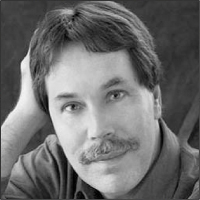Ted Gioia
// Author & MusicianTED GIOIA (pronounced “joy-ya”) is an author, composer, jazz critic, music historian, and pianist living in Plano, Texas. He has also served as Chairman of the Arts Council for the Fetzer Institute. His book “The History Of Jazz” (1998) is available from Oxford University Press, “Healing Songs” (2006), and “Work Songs” (2006) are both available from Duke University Press, and “Delta Blues” (2008) is available from W. W. Norton & Company. His recordings include “The End Of The Open Road” (1988), “Tango Cool” (1990), and “The City Is A Chinese Vase” (1998). Ted Gioia was one of the founders of Stanford University’s Jazz Studies program, and of the music web portal Jazz.com.
Website: www.tedgioia.com
Photo: Dave Shafer
Interview:
“LOVE AND FORGIVENESS IN THE MUSIC”
Our culture is built increasingly on anger and confrontation. I’ve traced the history of this unfortunate syndrome in my book The Birth (and Death) of the Cool, where I describe the situation as “modern society losing its cool.” You see this in many ways—on talk radio, in town hall meetings, in social media, and especially in virtually every modern outlet for political discourse. One of the fastest growing professions is “anger management counseling.” That didn’t even exist as a job title when I was a youngster, but now anger management is a booming business.
Music-making is the exact opposite of this. Who knows, maybe music was the first anger management therapy? Put people together in a musical ensemble or some other group creative endeavor, and they learn how to interact and express themselves in non-confrontational ways. You can’t make good music when you’re angry, and the whole path of artistic expression forces us to tap into our most vulnerable emotions. If we could live the rest of our lives with the mindset we bring to music-making, our world would be a much different place.
Let’s not underestimate the power of music to change hearts and minds. Long before the end of segregation in the United States, jazz musicians began performing together in integrated bands. Back in 1923, a white band called the New Orleans Rhythm Kings joined up with African American pianist Jelly Roll Morton, and both were delighted at the opportunity to collaborate in music- making. At the height of his fame in the mid-1930s, Benny Goodman moved to integrate his band. You need to remember that Goodman was the most popular bandleader in America at the time, and this move came more than a decade before professional sports accepted black players and almost two decades before the end of school segregation in the United States.
I could give many other examples, but my larger point is that music brings people together. Researchers have proven its importance in “coalition building,” as they describe it. But let me describe the same phenomenon as expanding the human heart’s capacity for love and forgiveness.
I am writing a book on the history of love songs, and my research has convinced me that music teaches us how to love. In fact, Darwin believed that music played precisely this role in the evolution of the species. Most people think of love songs as dealing only with physical love, but the history of music shows that songs also express the highest forms of spiritual or divine love. Certainly St. Francis of Assisi believed this when he borrowed from the love songs of the troubadours in composing his famous canticle. At almost the very same moment in history, Rumi was tapping into the power of song to express divine love in 13th century Islamic society. Dante expressed a very similar view of music and spiritual love. Even in the modern day, the iconic saxophonist John Coltrane enjoyed the biggest commercial success of his career with his album A Love Supreme, a powerful example of music as source and expression of transcendent love.
“Let’s not underestimate the power of music to change hearts and minds.”
– Ted Gioia, Author & Musician


